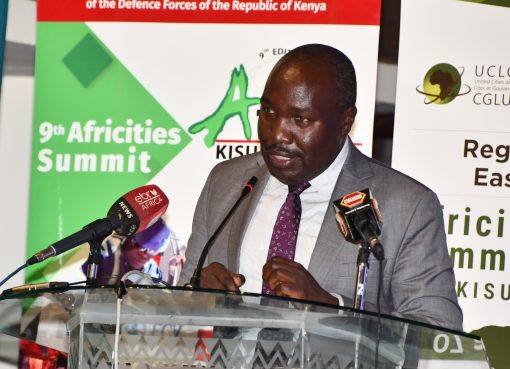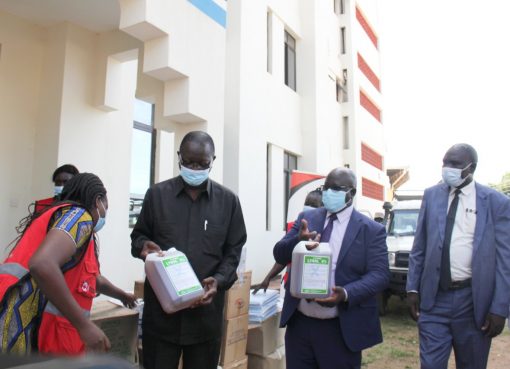The UN Plan of Action on the safety of journalists and impunity has provided funding for a sustained, coordinated framework aimed at tackling threats facing journalists globally.
This came to the fore as the world marked the 10 years celebrations since the UN Chief Executives Board endorsed its Plan of Action arguing “without freedom of expression, and particularly freedom of the press, an informed, active and engaged citizenry is still impossible”.
The UN publication update for May 30, 2022 states that the plan also recognizes how crucial this work was to the delivery of other development objectives.
It singles out: democratic governance and poverty reduction; conservation of the environment, gender equality and empowerment of women as well as justice and a culture of human rights as key objectives to be addressed over the next 10 years.
Prof. George Nyambuga of Maseno University told a webinar for journalists on safety organized by the UN on September 23, 2022 on behalf of the Editors – Guild that continuous harassment and prosecution of journalists is still a major concern.
Prof. Nyambuga also cited poor governance and abuse of humanity as some of the other issues that the UN study conducted in 7 countries in the East African region seeks to address.
He said the document has set out to increase the ambition, cooperation and effectiveness of national, regional and international organizations in working towards a safe and free working environment for journalists.
“It’s the powerful, prominent focal point for international and localized discourse and has contributed to adoption of resolutions and declaration by the UN Security Council among other organs of the world body”, the don stated.
He pointed out that the UN Plan of Action now has a dedicated indicator in the Sustainable Development Goals (SDGs), with robust work programmes spanning awareness – raising, Monitoring and Reporting, Academic Research, Standard Setting and Policy Making, Capacity and Coalition Building.
The Study was conducted in: Ethiopia, Rwanda, Burundi, Kenya, Uganda, South Sudan and Tanzania. The UN Plan of Action’s 10th Anniversary will be commemorated in Vienna, Austria in November, 2022 following consultations aimed at strengthening and instilling new energy in the Coalition’s and implementation in the face of new ever growing threats to journalists and freedom of expression.
Prof. Nyambuga observed that after the global COVID-19 pandemic which struck the world challenges of mistreating journalists has been attributed to governments’ attempts to silence the voices of reason.
“The legal framework, journalists’ operation under poor conditions and states and governments seeking to control internet access, especially during the electioneering period contributed to slow performance of the media and low levels of press freedom in the 7 countries,” he said.
The don also singled out national laws, international annual reports as well as NGO reports which all contributed towards determining high levels of impunity.
“Generally media pluralism is quite healthy and this in view of the mushrooming vernacular FM Radio stations, TVs and Print Media. This has greatly expanded the media space and so many developers are willing to invest in the media industry,” he explained.
He said although mobile telephony is widely spread, the internet was quite expensive and so has limited use by a few in the society. Prof. Nyambuga also decried the control of the media in terms of ownership with voices of elites promoted at the detriment of the less fortunate and downtrodden segments.
The don pointed out incidents of journalists who often get assaulted or kidnapped while others get banned from operations as issues of major concern. He argued that sometimes journalists get compromised to report certain stories in a skewed manner in favor of powerful individuals and organizations due to poor remuneration.
The other issue includes; reduction in audience share, low advertisement, poor working conditions and self-censorship as bad for the economy and political progress of the countries in question.
Prof. Nyambuga pointed out that Public Editors who interacted with news makers and thus promoted partnership as well as poor relationships that endangered the lives of respective journalists in the respective counties.
The don noted that the state and governments often seek to fill the lacuna (void) as the respective media houses failed to self-regulate.
This therefore, prompted respective Governments and States to go full throttle to control the media under the pretext of the fact that their action was aimed at prioritizing matters of public interest and security.
By Joseph Ouma and Joseph Otieno





